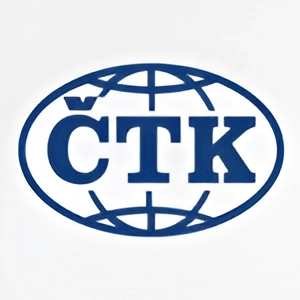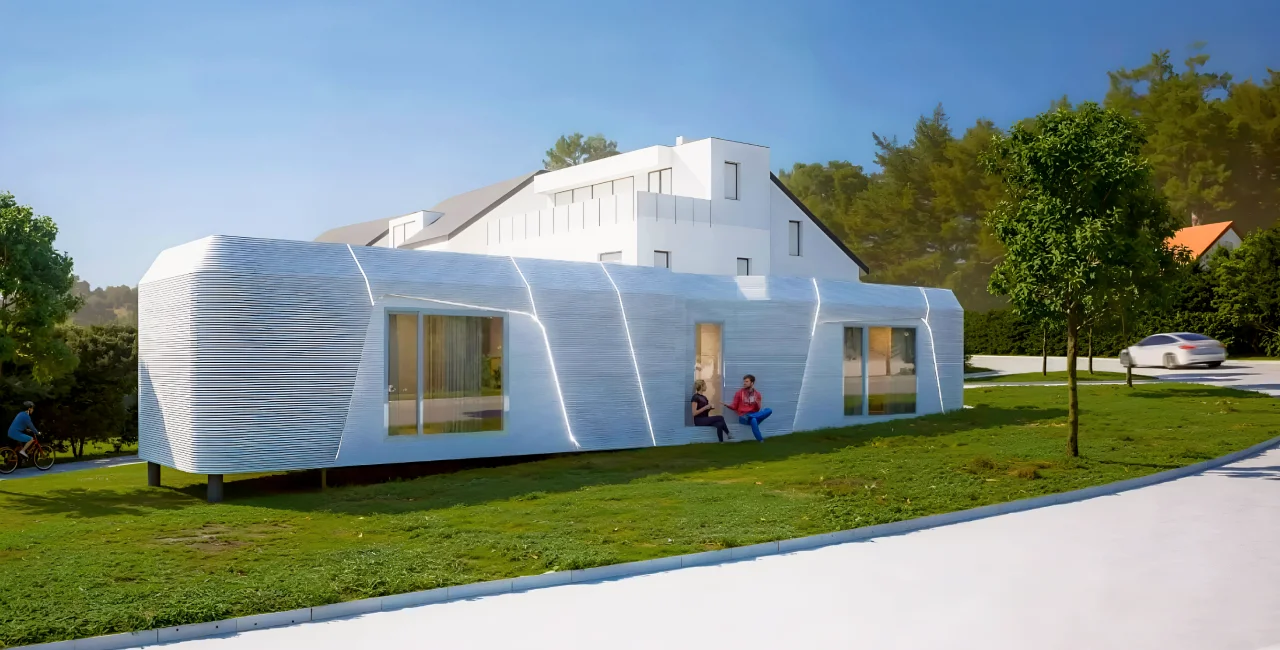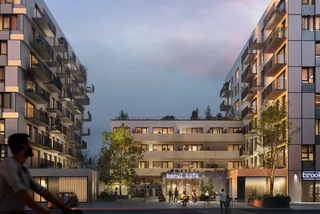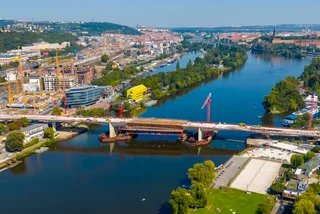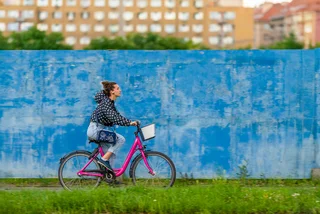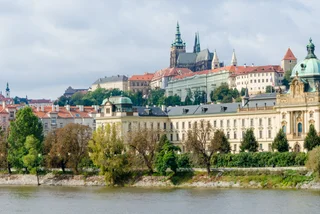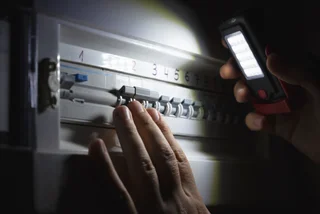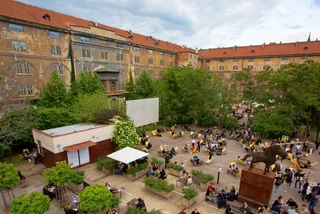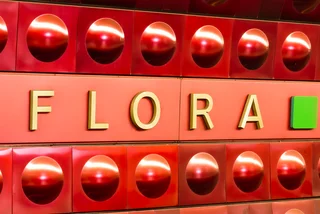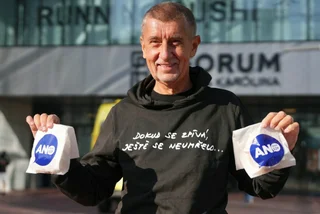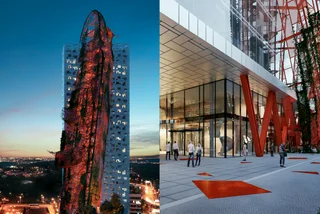A Czech company has unveiled Luxembourg’s first 3D-printed concrete house, offering a glimpse into how new technology might reshape housing across Europe.
ICE Industrial Services, based in Žďár nad Sázavou, printed the compact two-room tiny house in Niederanven, near Luxembourg City, in just 27.5 hours of machine time. The overall process, including administration and finishing, took about ten weeks.
PARTNER ARTICLE
Covering 50 square meters, the starter home is designed for young couples and includes a kitchenette, living area, flexible room, bathroom, and hallway. It also boasts solar panels and ten battery storage units, allowing for near energy self-sufficiency. The pilot project cost about CZK 8 million.
Niederanven Mayor Fred Ternes called the house “a very important undertaking” that could help address rising housing costs and labor shortages in the construction industry. More than 20 applications have already been submitted to live in the home.
Czech officials also see the project as a signal of national innovation. “This innovative building, created with a unique 3D printing technology, clearly shows that Czech companies have considerable potential in the Luxembourg market with high-quality and modern projects,” said Jiří Jílek, Czech deputy ambassador in Luxembourg.
For Czechia, where soaring housing costs and limited supply continue to frustrate house seekers, the success of ICE’s technology abroad raises questions about its potential at home. The company’s system can print directly from local mineral materials, promising flexibility and efficiency.
Czech innovators have already experimented with 3D-printed housing. In 2020, the floating home “Prvok” made headlines as the country’s first residential 3D-printed structure, while more recently, Czech builders have tested 3D printing in infrastructure projects.
With its pilot house in Luxembourg now attracting attention, ICE Industrial Services has positioned Czechia at the forefront of Europe’s push toward alternative, more sustainable housing solutions.
According to Pavel Zelenka from CzechTrade in Belgium and Luxembourg, “The uniqueness of this project lies in its incredible variability and efficiency in terms of time and cost. The fact that the Luxembourg side chose this project testifies to the quality of Czech technology.”

